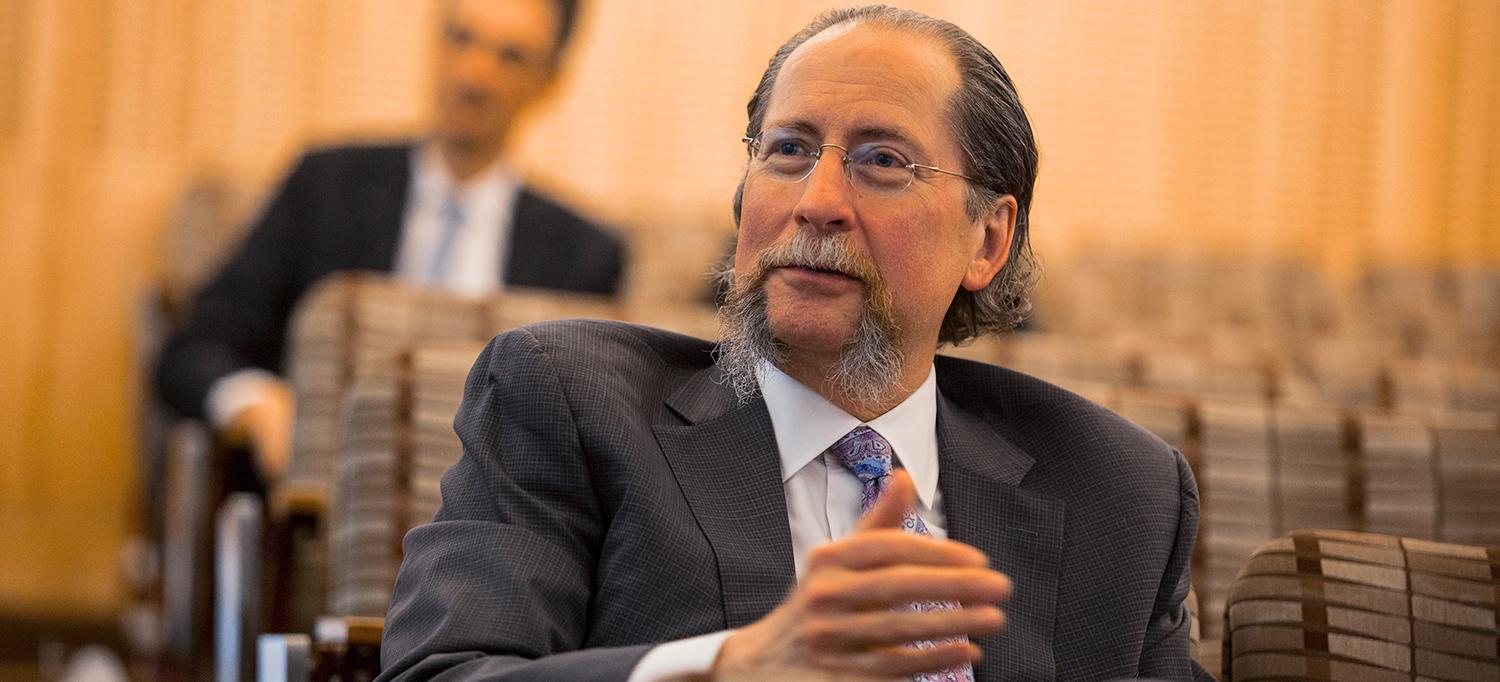
Transplant surgeon Dr. Robert Montgomery, a long-time advocate for the use of organs from high-risk donors, has now received a hepatitis C–positive heart transplant.
Photo: NYU Langone Staff
Robert Montgomery, MD, professor of surgery and director of NYU Langone Transplant Institute, has advocated for his patients to accept organs from high-risk donors for years. In September 2018, he had to make that decision for himself, as a heart transplant recipient.
Dr. Montgomery has familial cardiomyopathy, a genetic form of heart disease that killed his father at 52 and a brother at 35. He got a defibrillator implanted in 1989 at age 29, but over the years his heart function decreased. After he had four cardiac arrests within three hours in August, his transplant team decided he was an urgent transplant candidate, and he was listed.
“I actually hired the people that did my transplant, not knowing they would be saving my life at some point,” says Dr. Montgomery. Five days after entering the hospital, he had an offer of a hepatitis C–positive heart. Nader Moazami, MD, professor of cardiothoracic surgery and surgical director of heart transplantation at NYU Langone, performed Dr. Montgomery’s transplant.
The Transplant Institute now successfully transplants hepatitis C–positive organs to hepatitis C–negative recipients in their heart, lung, kidney, and liver programs. Patients are immediately treated for hepatitis C with medications, which are more than 95 percent effective. Dr. Montgomery tested positive for the disease five days after the surgery. He took oral medication every day for eight weeks, and the infection cleared. He returned to work part time two weeks after the surgery, and was back to full time two months later.
Read more from The Wall Street Journal (subscription required).

